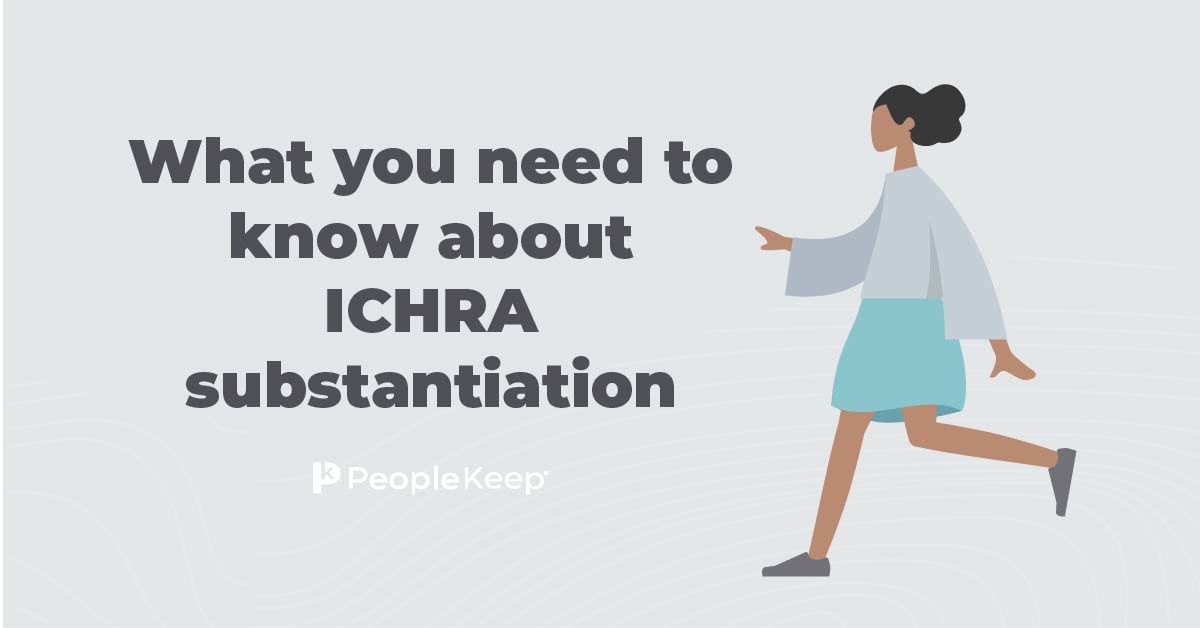Using HSA funds for dependents’ medical expenses
By Elizabeth Walker on April 4, 2025 at 9:45 AM
Health savings accounts (HSAs) are a popular way to save funds for future medical expenses. However, many people are unaware of the various ways they can use their funds. For example, most individuals use their HSA funds for their own medical costs. However, using them for dependents' medical expenses is also possible. But how does that work, and who qualifies as a dependent?
To help you get started, we’ll walk you through the process of using HSA funds for dependents' healthcare costs.
In this blog post, you’ll learn:
- How to use your HSA funds to cover healthcare expenses for your eligible dependents according to IRS guidelines.
- Which medical expenses you can use HSA funds on.
- How an HSA and HRA can maximize your medical care savings.
Who can you cover with your HSA?
A common question people have is, “Can you use your HSA for someone else?” The short answer is yes. However, IRS Publication 969 created guidelines for who you can use your tax-free HSA funds on1.
You can withdraw money from your HSA bank for:
- Yourself
- Your spouse (regardless of whether you file a joint return)
- Any HSA-eligible dependents you claim on your income tax return
- Anyone you would have claimed as a dependent but couldn’t because they filed a joint tax return or had a gross income of $5,050 or more
Dependents are different for HSAs than they are for traditional health coverage. HSAs define dependents based on tax status, but the Affordable Care Act (ACA) requires medical plans to cover dependents up to age 26. The IRS breaks dependent status into two categories: qualifying child and qualifying relative2. Here are the requirements for each.
Qualifying dependent children:
- Must have a certain relationship with the claimant (such as through blood, foster care, adoption, or legal guardianship)
- Can’t be 19 or older (or 24 or older if enrolled in college). They also can't turn 19 during the calendar year
- Must share a primary residence with the claimant for at least half of the calendar year
- Can’t provide more than half of their own financial support
Qualifying relatives:
- Must have a certain relationship with the claimant
- Can’t be a qualifying child of any other person
- Must earn less income than the exemption amount
- Must receive more than half of their financial support from the claimant
- Must live with the claimant for the entire year
How do you use HSA funds for your dependents' medical expenses?
Understanding how to utilize your HSA funds for your dependents' health expenses can be a game-changer. Not only can it provide financial relief for out-of-pocket medical costs, but it also ensures that your loved ones have the care they need to stay healthy.
The IRS has strict rules regarding who's considered a dependent. They also regulate the eligible expenses an HSA can cover. HSAs are only in one person's name. But, account holders can use their funds for their dependents' medical costs as long as those out-of-pocket expenses are not paid for by another HSA or health reimbursement arrangement (HRA).
You can’t usually use an HSA to pay for health insurance premiums. However, there are some exceptions.
According to the IRS, an HSA can pay your premiums for your dependent’s:
- Long-term care policy
- COBRA health coverage
- Health coverage while on unemployment
What other dependent care expenses can an HSA cover?
You can use your HSA funds for other eligible out-of-pocket expenses for your dependent, including medical, dental, and vision care.
Here are some additional eligible expenses your HSA covers for your tax dependents:
- Flu shots
- Pain relievers
- Eye exams
- Physical exams
- Physical therapy
- Speech therapy
- Prescription drugs
- Prenatal vitamins
- Menstrual care products/feminine hygiene products
- Birth control pills
- Motion sickness medication
- Medicated lip treatments
- Diagnostic services
- Diabetic supplies
- Ambulance services
The IRS offers a complete list of eligible expenses in Publication 502.
Can I use an HSA with other health benefits?
HSAs work with qualifying high-deductible health plans (HDHPs) to help offset medical care costs. But they’re extra valuable when combined with an HRA. With an HRA, employers can reimburse their employees' qualified expenses with tax-free money.
Two types of HRAs can pair with an HSA:
- The individual coverage HRA (ICHRA) is for employers of all sizes. As long as you have a qualified individual health plan, your employer can reimburse you for your health insurance premiums while your HSA covers other out-of-pocket medical expenses.
- The qualified small employer HRA (QSEHRA) is for small businesses with fewer than 50 full-time equivalent employees (FTEs). Unlike the ICHRA, they have annual contribution limits. To take advantage of the QSEHRA, you must have a health plan with minimum essential coverage (MEC).
Combining an HRA with an HSA is possible. But, your employer must adjust your HRA to meet specific requirements. If you have a QSEHRA, your employer must design the benefit as a limited-purpose QSEHRA that only covers health insurance premiums, dental and vision expenses, and long-term care insurance premiums.
If your company offers you an ICHRA, it must reimburse individual health plan premiums only. Then, you can use your HSA funds to cover any out-of-pocket medical costs.
Conclusion
A health savings account is an effective way to offset medical expenses your health insurance plan doesn't cover. The money in your HSA bank can benefit you and your tax dependents. However, it's crucial to understand the federal regulations, specifically who you can use the funds on and eligible out-of-pocket expenses, to avoid penalties later.
To determine if your dependents' medical expenses are eligible for HSA funds, consult IRS guidelines or seek advice from a qualified tax preparer.
This blog post was originally published on January 25, 2017. It was last updated on April 4, 2025.
Check out more resources
See these related articles

How HRAs work for spouses and dependents
Learn about the eligibility and benefits of health reimbursement arrangements (HRAs) for spouses and dependents in this comprehensive overview.

What you need to know about ICHRA substantiation requirements
Learn the steps employers need to take to ensure employees and their dependents participating in the individual coverage HRA (ICHRA) are properly insured.

How do HSAs and health insurance compare?
Wondering whether an HSA or health insurance is right for you? Learn the key differences between the two in this easy-to-understand comparison.



